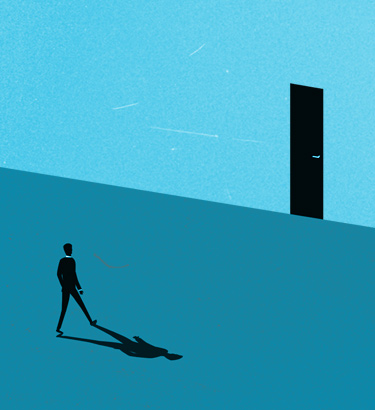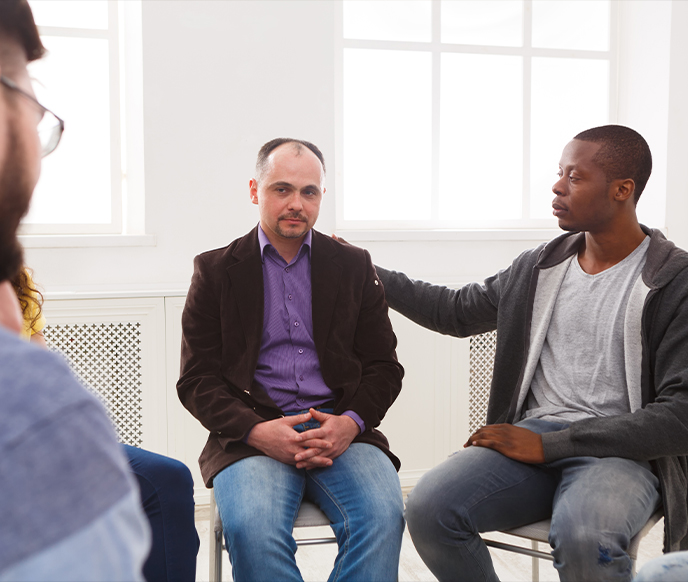Welcome to Giddy's series for Prostate Cancer Awareness Month. Each week, we will tackle a different aspect of prostate cancer and shed light on common misconceptions. This week, let's take a look at life after prostate cancer.


Prostate Cancer Awareness Month: Life After
If you have a prostate, you're automatically at risk for prostate cancer, as 1 in 8 men will receive a diagnosis at some point. But even if you develop prostate cancer, an early diagnosis and modern treatments can greatly improve your chances for survival. Just 1 in 41 men with prostate cancer will die from it, and the five-year relative survival rate is 98 percent. In fact, more than 3 million American men who were diagnosed with the disease are still alive today.
So what happens after treatment?
Take our quiz—don't panic, we encourage retakes and want everyone to get an A—and find out what you'll likely face after prostate cancer, including how it affects your body and how to keep it from recurring. You'll find links to content elsewhere on the Giddy site and to relevant studies and cancer organizations.
Our goal isn't to stump you with difficult questions. It's to inform and enlighten as part of the mission of Prostate Cancer Awareness Month, which spans September. Once you've aced this one, be sure to take all the previous quizzes: Risk Factors, Prevention, Symptoms, and Testing and Treatment.


False: Expect several lifestyle changes after prostate cancer, with some being easier to make than others. You will need to see your doctor regularly—at least once a year—and the visit will include a prostate-specific antigen (PSA) blood test to make sure your PSA levels remain normal. If your prostate gland was not surgically removed, its current size and structure will be examined. If you use tobacco of any kind, you need to eliminate it after surviving prostate cancer. (Eliminating tobacco at any time is a good idea.) There are no hard-and-fast rules for dietary changes after prostate cancer, but it wouldn't hurt to maintain a healthy diet with plenty of fresh or frozen vegetables, whole grains, lean meats, healthy fats and few, if any, dairy products. Another lifestyle change you may need to make is to establish a regular exercise routine if you don't already have one.

True: If you had prostate cancer and successfully recovered, you have a risk of recurrence later in life. An estimated 20 to 30 percent of men will experience a prostate cancer recurrence after the five-year mark of their initial cancer treatment. You can proactively make sure any recurrence will be detected, diagnosed and treated early by keeping up with annual appointments with your doctor and your urologist to detect any changes in your PSA levels. However, even if you're proactive and the outlook is positive, you may experience feelings of dread that your prostate cancer could return.



True: Much to many patients' chagrin, some forms of prostate cancer treatment make it difficult for a man to resume normal sexual relations, particularly after surgery. For example, a man who undergoes a prostatectomy, in which the entire prostate and seminal vesicles are removed, may experience dry orgasms because his body's means of producing seminal fluid has been excised. Other treatments, such as radiotherapy, hormone therapy and brachytherapy, can also impact erections and ejaculation; hormone therapy, for example, lowers a man's testosterone level, thus reducing his libido.
Men who are used to a healthy sex life may find post-treatment processes to be psychologically dispiriting, but physical side effects can usually be managed. For patients who sustained nerve and blood vessel damage during surgery, penile injection therapy can help them achieve erections. In more challenging cases, the implantation of a penile prosthesis can make a significant difference.

False: Support groups for survivors of prostate cancer allow you to network and bond with other men who understand what you're going through. These meetings also give you a chance to speak freely about your fears, which can help relieve stress.



True: Stress reduction offers a wide range of health benefits, some of which are specific to reducing the risk of a prostate cancer recurrence. These benefits include a stronger immune system, improved sleep, the ability to maintain a healthy weight, and an overall improved mood and well-being. Habits such as exercise and maintaining a healthy diet will help keep stress levels down over time.









